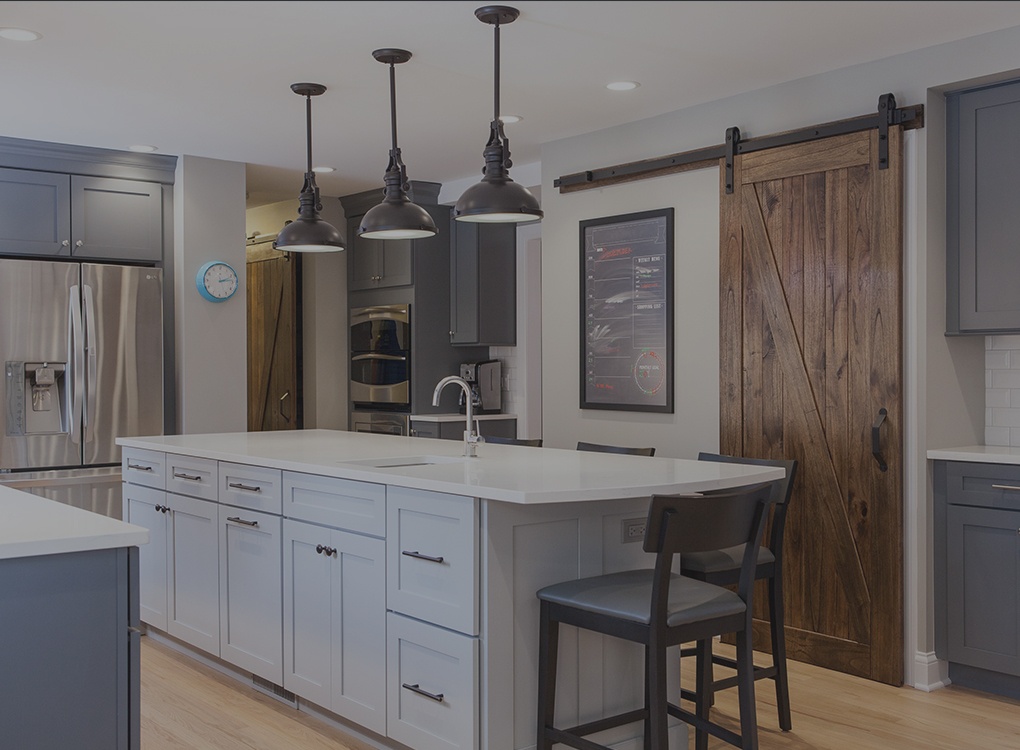Beyond Googling project prices and allocating estimated finances, most Chicago North Shore home-owners don’t know all the steps involved in planning budgets for a successful home remodel. Today, we’ve compiled a list of “don’ts” to help you avoid financial mishaps before and during your remodel.
Don’t Begin Demolition Before Doing Your Research
This one sounds obvious, but sometimes, homeowners are so eager to transform their living spaces that they embark on their project without thoroughly researching its costs and ROIs. Before you begin, be sure to check area-specific average estimates for your remodeling project and compare your investment numbers to your ROI numbers. (ROIs can be intangible as well as financial, but having a rough idea of resale value can help you determine the scope of your remodel.)
Don’t Assume These Numbers Will Directly Apply to Your Project
While sources like these Remodeling Investment blogs are wonderful tools to help you gain your financial bearing before embarking, remember that every project is unique. Be flexible when you meet with contractors for quotes, and realize that the caliber of your remodeler, the quality of your materials, and the size of your project may influence the numbers you researched online.
Don’t Budget to Meet Your Estimate
Why shouldn’t you budget to meet your estimate? Every remodeling project, especially those conducted in historic homes, comes with its own surprises. Sometimes, you’ll unearth a gem like a gorgeous hardwood floor beneath an outdated carpet and you’ll decide to return the flooring you ordered and restore the old.
In this case, you’ve just saved money, and your bank account will thank you for it. In other cases, you may uncover mold, water damage, walls that need to be reinsulated, or out-of-date and out-of-code electrical configurations. This is where being over prepared helps.
If you’ve prepared your budget for unexpected setbacks, you’ll be able to address issues as they arise without anxiety or delays in timelines. If you don’t encounter any issues, you’ll have extra money when the project concludes.
Don’t Choose the Cheapest Contractor
How do you choose the best bid? Here’s a hint: Don’t choose the cheapest bid. There are many factors involved in knowing which remodeling company is right for your needs, but if you make your decision solely based on low spendings, you’ll likely spend the duration of the project and the remainder of your residence regretting that cost was your end-all, be-all.
This doesn’t mean you have to choose the highest bid, but it does mean you should make your decision based on the company you believe will match your remodeling goals as a whole. Here’s where vetting website testimonials, Houzz reviews, and awards can be extremely beneficial. If other clients and professionals found the remodeling company you’re considering satisfactory, you likely will too.
Don’t Select the Cheapest Materials
Just as with your contractor, the cheapest materials often won’t give you the results you want, especially since you’ll likely end up replacing materials that don’t wear well within five to ten years. There are certain places it’s okay to save, but here again, cheapest should not be your determining factor.
Don’t Try to Do it All at Once
Finally, we’ve given lots of advice about the ways in which trying to save too much can end up costing you in the long run, but we also recognize that not everyone has a limitless budget allocated for their remodel. If your numbers aren’t matching your goals, try tackling your goals a little at a time.
If you plan to remain in your home for years to come, you’ll get the most out of your money (and you’ll also minimize inconvenience) if you don’t try to do it all at once. For questions about the best way to approach your Chicago North Shore remodeling project in phases, consult your contractor.
Click the image below to see the full infographic



![Download our 2018 Chicago North Shore Remodeling Cost Report [PDF]](https://no-cache.hubspot.com/cta/default/2583273/52a278c0-c0ef-4c93-95a1-4a2066bccfd2.png)








